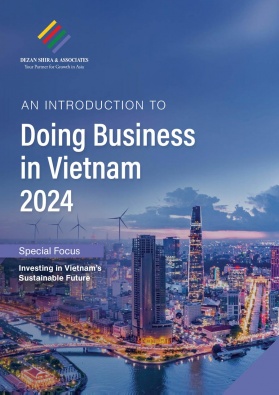Investment Opportunities in Refrigerated Transportation in Vietnam
Refrigerated transport is in demand in Vietnam on the back of rising interest in imported foods that need to be kept cool. Here’s where foreign firms may be able to profit.
Over the last decade, Vietnam has made significant economic progress on the back of a myriad of free trade agreements. These agreements have not only boosted exports but have also driven rapid growth in the high-end imported foods sector.
Furthermore, the availability of food, as well as quick and convenient purchasing methods through e-commerce channels is also helping the sector along.
In fact, Asbjorn Warvik Rortveit, the Southeast Asia Regional Director of the Norwegian Seafood Council (NSC), says that Vietnam is the largest consumer of Norwegian seafood, buying approximately 50,000 tons in 2022.
Vietnam has also become a big importer of beef from the United States, Australia, and Japan with these imports popular as an alternative to domestic beef because they’re understood to be as easier to cook.
Furthermore, imported milk and dairy products are also popular. According to the General Department of Customs, Vietnam imported more than US$358 billion worth of milk and dairy products from New Zealand in 2022, with French cheese and Italian gelato also popular among Vietnamese consumers.
That said, meeting this demand requires being able to keep foods chilled and that requires refrigerated transportation. In this light, we look at where the investment opportunities may be in this in-demand sector.
Investment opportunities
Vietnam’s cold chain logistics market is forecast to grow at a CAGR of 12.24 percent by 2029, according to information from Global Information, Inc. As a result of rising domestic demand for fresh and frozen foods, this sector has tremendous future growth potential. Companies participating in the Vietnamese refrigerated logistics market are expected to grow rapidly in the coming years as demand for fresh and frozen foods rises, and foreign firms can get in on the action in several ways.
Containers
The refrigerated transportation market in Vietnam is currently divided into four categories: railway, air, road, and waterways. Railways, roads, and waterways are the most common due to their capacity to move massive numbers of goods in containers with enormous capacity.
In this light, foreign investors could consider supplying Vietnamese logistics firms with high-quality refrigerated containers fitted with temperature notification systems with real-time temperature updates.
Electrification
Foreign investors can potentially find investment opportunities in investing in green logistics. Investing in the development of electric refrigerated trucks and vans and selling them to local firms could be profitable. These firms may also be able to take advantage of the Vietnamese government’s ESG project support policies. These government measures provide several benefits to firms in terms of cost reduction. Specifically, the policy reduces the special consumption tax on electric vehicles to 1 to 3 percent and this applies to the end of February 2027.
Digitization
Another attractive investment option in the refrigerated transportation sector for investors is digital solutions. Implementing cutting-edge technologies in refrigerated transportation in Vietnam is regarded as critical to optimizing supply chains, lowering operating costs, and increasing overall efficiency.
Currently, the number of logistics businesses in Vietnam that have incorporated digital solutions into their operations is very limited. This is largely due to the investment capital barrier, as the digital transformation process requires significant financial resources. Therefore, cost-effective logistics management software may find a market in Vietnam.
Moving forward
As the quality of life improves and incomes rise for Vietnam’s 100-million-strong population, the demand for high-quality food that needs to be kept cool will also likely increase. The refrigerated transport business is therefore not only vital for limiting wastage and ensuring freshness, but it is also opening up many attractive and profitable investment opportunities for foreign investors.
For advice or more information on investing in Vietnam’s refrigerated transportation sector contact the business advisory expert at Dezan Shira and Associates.
About Us
Vietnam Briefing is published by Asia Briefing, a subsidiary of Dezan Shira & Associates. We produce material for foreign investors throughout Eurasia, including ASEAN, China, India, Indonesia, Russia & the Silk Road. For editorial matters please contact us here and for a complimentary subscription to our products, please click here.
Dezan Shira & Associates provide business intelligence, due diligence, legal, tax and advisory services throughout the Vietnam and the Asian region. We maintain offices in Hanoi and Ho Chi Minh City, as well as throughout China, South-East Asia, India, and Russia. For assistance with investments into Vietnam please contact us at vietnam@dezshira.com or visit us at www.dezshira.com
- Previous Article Vietnam’s Business Climate Stabilizing: EuroCham Q4 Survey
- Next Article January 14 Heralds End of Economic Needs Test for CPTPP Members





